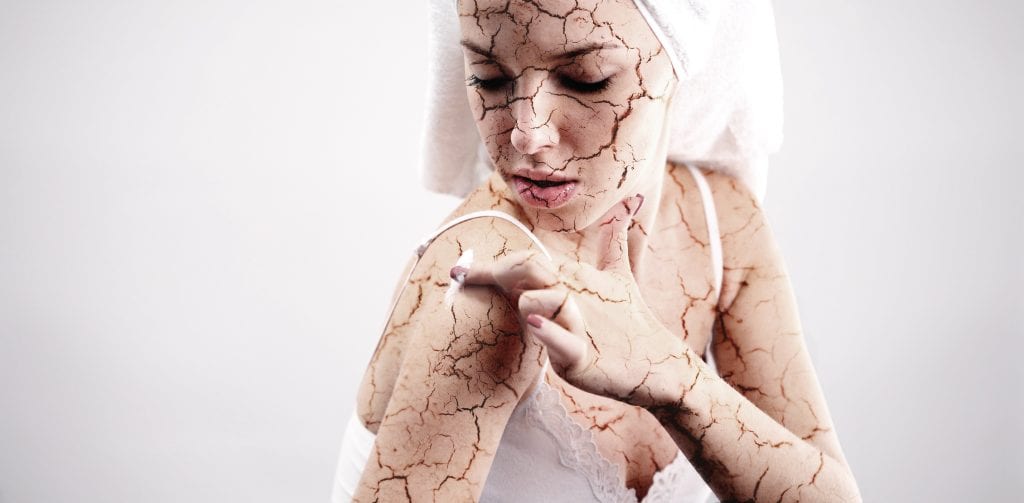With winter time upon us, dry skin is a very common concern we see here at the office.
There can be several reasons why you are struggling with dry skin. Below is a summary of some of the most common causes:
Environmental:
Low humidity, windy and cold environments with central heating or space heaters can deplete moisture from the skin; this can be a common problem during winter or in desert climates.
Bathing habits:
Your soap, moisturizers, and temperature of your water may play a role in dry skin.
Medications:
Diuretics, cholesterol medications, and retinoids, both systemic (isotretinoin) and topical (Retin-A and retinol), can dry skin.
Medical history:
Thyroid dysfunction, diabetes, circulation issues, kidney disease and nutritional disorders can lead to dry skin.
Underlying skin disorder:
Primary skin disorders such as eczema and psoriasis can affect skin barrier and transepidermal water loss. Dry skin can also be inherited, as in the case of icthyosis, where a mutation is present that affects the skin’s ability to hold on to moisture.
Hobbies, Work:
Swimming in chlorinated water and hot tubs can also lead to dry skin. Also jobs or housework that require frequent hand washing can lead to dry, chapped skin.
What can I do to prevent dry skin?
First, take a look at the soap you are using in the shower. While your soap may make you feel squeaky clean and smell nice, it might be drying your skin out. Many soaps have surfactants not unlike detergents that strip the skin of oil, especially antibacterial and deodorant soaps. Gel soaps can also be drying. Although they may not get as sudsy, creamy soaps such as Dove unscented or cleansing creams can be helpful. In addition, take a look at the temperature of your water. Think of the oils on the skin like butter, when the water temperature gets too hot the oils melt off leaving your skin dry. Shorter, lukewarm showers are better for the skin than longer hot showers. Finally, seal the moisture into the skin after a shower or bath with a creamy moisturizers such as CereVe cream. Lotions and creams are a blend of oil and water; creams have a higher concentration of oil to water than lotions and therefore are more moisturizing. Applying a moisturizer directly after the skin is damp will help to lock in the moisture. For extremely dry, chapped skin, vaseline petroleum jelly or aquaphor can be helpful.
My dry skin is itching constantly, nothing over the counter seems to be working. What should I do?
Sometimes dry itchy skin can’t be fixed with moisturizers alone, if the skin barrier is damaged and there is severe inflammation, an anti-inflammatory topical such as prescription strength topical steroids can be helpful. See your dermatologist if your itchy dry skin is not improved with over the counter moisturizers.
My eyebrows and nose are flaky all the time even though I moisturize constantly, why are they so dry?
You may have a condition called seborrheic dermatitis. This is best evaluated by a dermatologist as it can commonly be confused with dry skin, however it is an inflammatory dandruff related to sebum (oil) and interaction of pityrosporum yeast on the skin. Mild steroids and anti-fungal creams can be helpful to control this condition.
Until next time!

